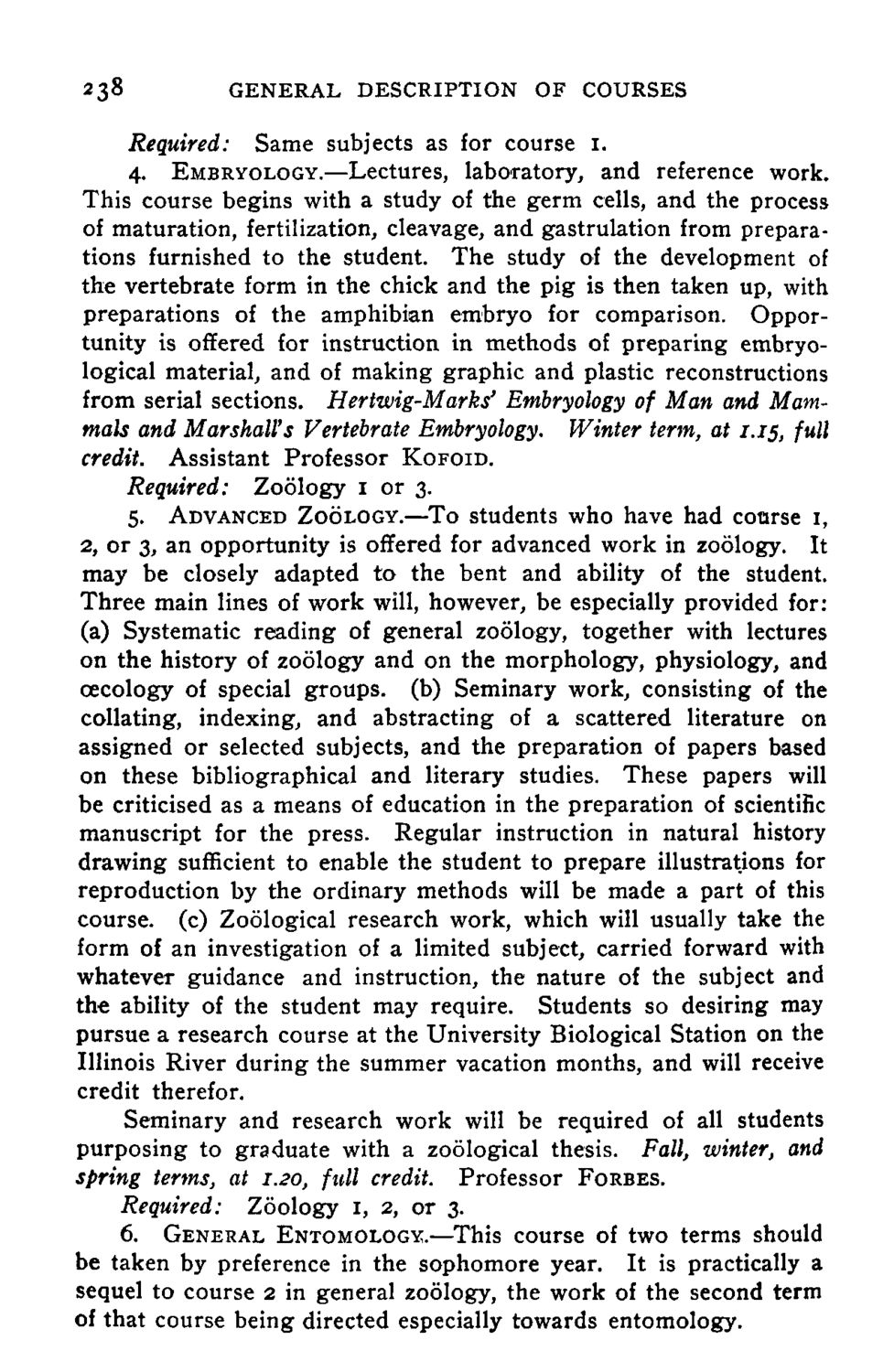| |
| |
Caption: Course Catalog - 1897-1898
This is a reduced-resolution page image for fast online browsing.

EXTRACTED TEXT FROM PAGE:
238 GENERAL DESCRIPTION OF COURSES Required: Same subjects as for course 1. 4. EMBRYOLOGY.—Lectures, laboratory, and reference work. This course begins with a study of the germ cells, and the process of maturation, fertilization, cleavage, and gastrulation from preparations furnished to the student. The study of the development of the vertebrate form in the chick and the pig is then taken up, with preparations of the amphibian embryo for comparison. Opportunity is offered for instruction in methods of preparing embryological material, and of making graphic and plastic reconstructions from serial sections. Hertwig-Marks' Embryology of Man and Mammals and Marshall's Vertebrate Embryology. Winter term, at 1.15, full credit. Assistant Professor KOFOID. Required: Zoology 1 or 3. 5. ADVANCED ZOOLOGY.—To students who have had course 1, 2, or 3, an opportunity is offered for advanced work in zoology. It may be closely adapted to the bent and ability of the student. Three main lines of work will, however, be especially provided for: (a) Systematic reading of general zoology, together with lectures on the history of zoology and on the morphology, physiology, and cecology of special groups, (b) Seminary work, consisting of the collating, indexing, and abstracting of a scattered literature on assigned or selected subjects, and the preparation of papers based on these bibliographical and literary studies. These papers will be criticised as a means of education in the preparation of scientific manuscript for the press. Regular instruction in natural history drawing sufficient to enable the student to prepare illustrations for reproduction by the ordinary methods will be made a part of this course, (c) Zoological research work, which will usually take the form of an investigation of a limited subject, carried forward with whatever guidance and instruction, the nature of the subject and the ability of the student may require. Students so desiring may pursue a research course at the University Biological Station on the Illinois River during the summer vacation months, and will receive credit therefor. Seminary and research work will be required of all students purposing to graduate with a zoological thesis. Fall, winter, and spring terms, at 1.20, full credit. Professor FORBES. Required: Zoology 1, 2, or 3. 6. GENERAL ENTOMOLOGY.—This course of two terms should be taken by preference in the sophomore year. It is practically a sequel to course 2 in general zoology, the work of the second term of that course being directed especially towards entomology.
| |